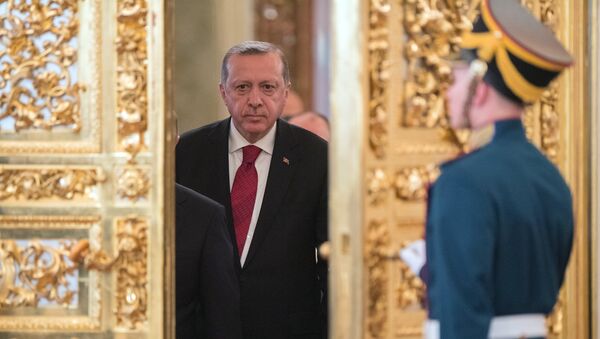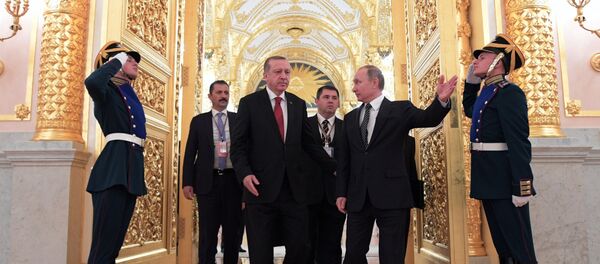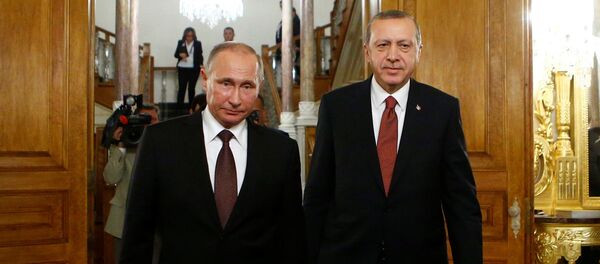During the Friday meeting, the leaders discussed bilateral cooperation and the situation in Syria, in particular the ceasefire regime and the interaction of the two countries on the global stage.
Now Turkey plans to increase products supplies to Russia and restore the flow of Russian tourists to the country.
"It was the most productive visit of the Turkish President. A large number of agreements were signed and these are designed to boost bilateral ties between the two countries. The agreements cover a whole range of subjects: economy, investments, tourism, cultural cooperation. So, in bilateral terms I think it was a highly productive and beneficial visit," Turkish diplomat and former Turkish ambassador to the US Faruk Logoglu said in an interview with Radio Sputnik.
In an interview with Sputnik he stressed that the two countries have wide cooperation opportunities in the fields of energy, trade, investment banking, scientific and cultural exchanges.
"At the same time, the most important directions of Russia and Turkey's joint efforts are security issues and countering the terrorist threat. In this regard, the most important decisions are the agreements on cooperation between Russian and Turkish law enforcement agencies on establishing mutual ties and fostering the exchange of operational information," the official said.
At the same time, senior research fellow at the Center for Arab and Islamic Studies of the Institute of Oriental Studies at the Russian Academy of Sciences Boris Dolgov noted that Russian-Turkish relations as a whole have always been positive. According to him, as result of Erdogan's visit, "there are good prospects for cooperation in various fields."
However, Director of the Center for Middle Eastern and Central Asian Studies Semyon Bagdasarov admitted that he always cautiously assesses the so called "historic visits." In particular, Bagdasarov stressed that the Kurdish issue still remains the highest priority for Erdogan what might lead to certain difficulties in Russian-Turkish relations.
"For Erdogan, the key issue is the liquidation of the so called Federation of Northern Syria. This territory in the northeast of Syria is under control of the Kurdish "Democratic Union" party and their self-defense units," Bagdasarov told Russian Vzglyad newspaper.
"We have already been very passive on the Kurdish issue, what gave the Americans an opportunity to gain a foothold there, create several military structures in the northeast of Syria, including a fairly serious base 35 kilometers south of Kobani capable of hosting heavy transport planes," he pointed out.
According to the expert, Russia understands that it can't satisfy Erdogan's ambitions on the Kurdish issue.
"Russia can't be under Turkey's thumb. We shouldn't hurry with the Kurdish question. On the contrary, we need to strengthen our position on this aspect, "Bagdasarov concluded.





